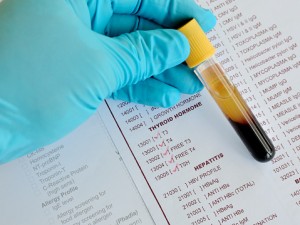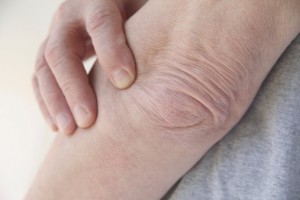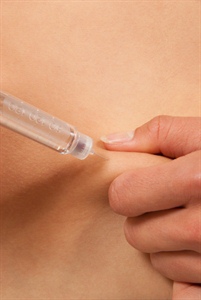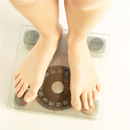Hypertensive retinopathy: Is your blood pressure stealing your vision?
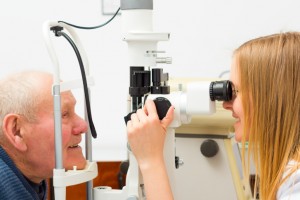 Vision loss may seem like something that occurs naturally through aging, but this isn’t always the case. There are many other contributing factors which can harm our vision –and controlling these issues can protect our vision even in our old age.
Vision loss may seem like something that occurs naturally through aging, but this isn’t always the case. There are many other contributing factors which can harm our vision –and controlling these issues can protect our vision even in our old age.
You’re probably familiar with vision loss because of diabetes but there is another health concern which can affect our vision – it’s hypertension. That’s right, our blood pressure can greatly affect our vision and can lead to hypertensive retinopathy.
What is hypertensive retinopathy?
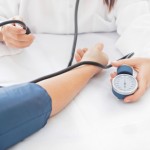 To understand what is hypertensive retinopathy, it’s important to start with retinopathy. Retinopathy is a condition in the eyes which causes damage to the retina – the part of the eye that senses light. When this damage occurs it can lead to partial or complete vision loss.
To understand what is hypertensive retinopathy, it’s important to start with retinopathy. Retinopathy is a condition in the eyes which causes damage to the retina – the part of the eye that senses light. When this damage occurs it can lead to partial or complete vision loss.
Hypertensive retinopathy then is a condition where retinopathy is caused by hypertension – or high blood pressure. High blood pressure over time causes damage to the blood vessels – this can occur anywhere in the body and can lead to heart problems. Bleeding, blockages and thickening of the arteries within the eyes may happen which ultimately affects our vision.
Causes of hypertensive retinopathy
As we mentioned, hypertensive retinopathy occurs with chronic high blood pressure.
So the causes of hypertensive retinopathy are similar to basic causes of hypertension. Some of the causes of hypertension include:
- Lack of activity – being overweight
- Smoking
- Stress
- Poor diet – consuming too much processed and fatty foods, salt and sugar.
Difference between diabetic retinopathy and hypertensive retinopathy
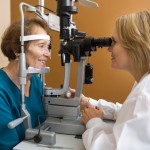 Diabetes can also lead to retinopathy, but there are some differences to take note of.
Diabetes can also lead to retinopathy, but there are some differences to take note of.
In hypertensive retinopathy, the blood vessels become damaged and may bleed; in diabetic retinopathy the vessels actually deteriorate. Fluid can then collect in the retina leading to swelling which affects sharp vision.
Also, in diabetic retinopathy, blood vessels may grow on the surface of the retina causing bleeding. These vessels are unstable, whereas in hypertensive retinopathy although the vessels may become damaged they do not move.Lastly, the retina in diabetic retinopathy may separate and a gel can form between the lens and retina which can lead to bleeding and block vision. Not to say that diabetic retinopathy is more severe than hypertensive retinopathy, but as you can tell, much damage can occur to the eye as a whole.
Signs and symptoms of hypertensive retinopathy
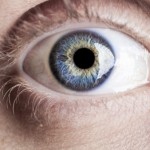 Hypertensive retinopathy symptoms depend on the grading. Hypertensive retinopathy grading comes in four levels, ranging from mild to severe.
Hypertensive retinopathy symptoms depend on the grading. Hypertensive retinopathy grading comes in four levels, ranging from mild to severe.
Similar to hypertension, hypertensive retinopathy symptoms are minimal. The only symptom people may notice is blurry vision, but even by that point permanent damage may have set in. If changes to your vision occur this is a result of very high blood pressure, so seeking medical attention is advised.
Hypertensive retinopathy grading 1: In this grade the arterioles become thicker.
Hypertensive retinopathy grading 2: The veins begin to constrict and frontal arteriolar spasm occurs. Minimal symptoms are seen in this grading and can be seen as normal hypertension symptoms.
Hypertensive retinopathy grading 3: Fat deposits occur within the eye; so does hemorrhaging and ischemia. Headaches, vertigo, and nervousness may occur. Blood pressure is high in this grading.
Hypertensive retinopathy grading 4: Papilledema occurs – swelling of the optic disc. You may experience weight loss, have elevated blood pressure, headaches and heart problems.
Tips to prevent hypertensive retinopathy
As you can see, hypertensive retinopathy can be quite serious and result in complete vision loss. So preventing its onset is vital to maintain healthy vision. The secret then to preventing hypertensive retinopathy is to monitor and manage blood pressure.
Some effective tips to prevent hypertensive retinopathy and maintain healthy blood pressure are the following:
- Exercise regularly – Know your capabilities and create an exercise plan best suited to your abilities. Even 10 minutes can begin to help lower blood pressure.
- Eat well – Avoid processed foods, foods with high amounts of salt and sugar, minimize trans fats and eat whole foods which can benefit the entire body.
- Keep a healthy body weight – Being overweight can contribute to high blood pressure. By exercising and eating well you can maintain a healthy weight and ensure your blood pressure stays healthy.
- Monitor your health – Keeping track of your blood pressure is easy and can be done at home as long as you have the device. Monitoring your blood pressure will allow you to catch problems on early and make appropriate changes.
- Follow directions on medications – If your doctor has you on medications for your blood pressure, ensure you are taking these as directed. Misuse of medications will cause them to be ineffective and lead to further problems.
Our bodies are so connected that even if one aspect of our health changes for the worse it can lead to greater problems elsewhere. This is how hypertensive retinopathy comes about as blood pressure that is unmanaged affects our eyes. Maintaining overall good health is vital to maintain proper function of all our abilities.
Controlling blood pressure is possible and it’s the easiest thing you can do to hold onto your vision.
-
Weight Loss Tips Intended For The Common Person
Are you looking to lose fat to improve your appearance, your health, o
-
3 Protein Mistakes Even Healthy Eaters Make
You know all about healt
-
Conjugated Linoleic Acid (CLA), Your Immune System, Weight Loss And More
Conjugated linoleic acid(CLA) is an essential fatty acid that is extre
-
How Can I Lose Weight Fast and Keep It Off?
Are you tired of trying diet after diet and never getting the long-
-
Achieving Your Goals: Lifestyle Changes
How many times have you wanted to do something about your life, make t
-
Chinese Slimming Tea Burns Fat And Calories
Chinese slimming tea works by burning fa
- DON'T MISS
- weight loss 1
- How 40,000 People Reverse Heart Disease
- 5 Weight Loss Tips That Dont Cost A Dime
- Diet Solution Program - How To Help Your Obese Child
- Jumpstart Your Weight Loss Plan
- Research Finds That Plus-Size Models May Be Making Us Obese
- Clenbuterol – The vital information that you have to know from experts within the subject
- 3 Reasons Why You're Overweight
- Easy Ways To Lose Weight
- Six New Superfoods You'll Want to Try and Other Hot Health Stories for the Week
